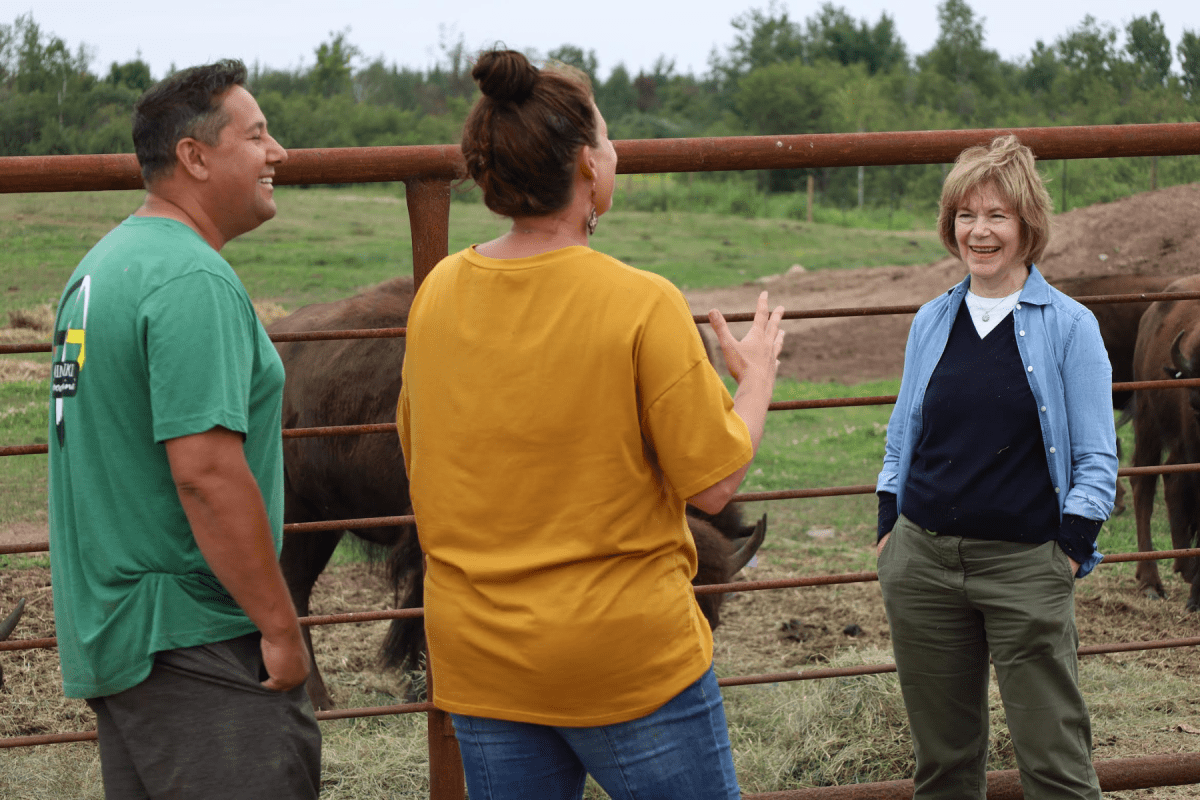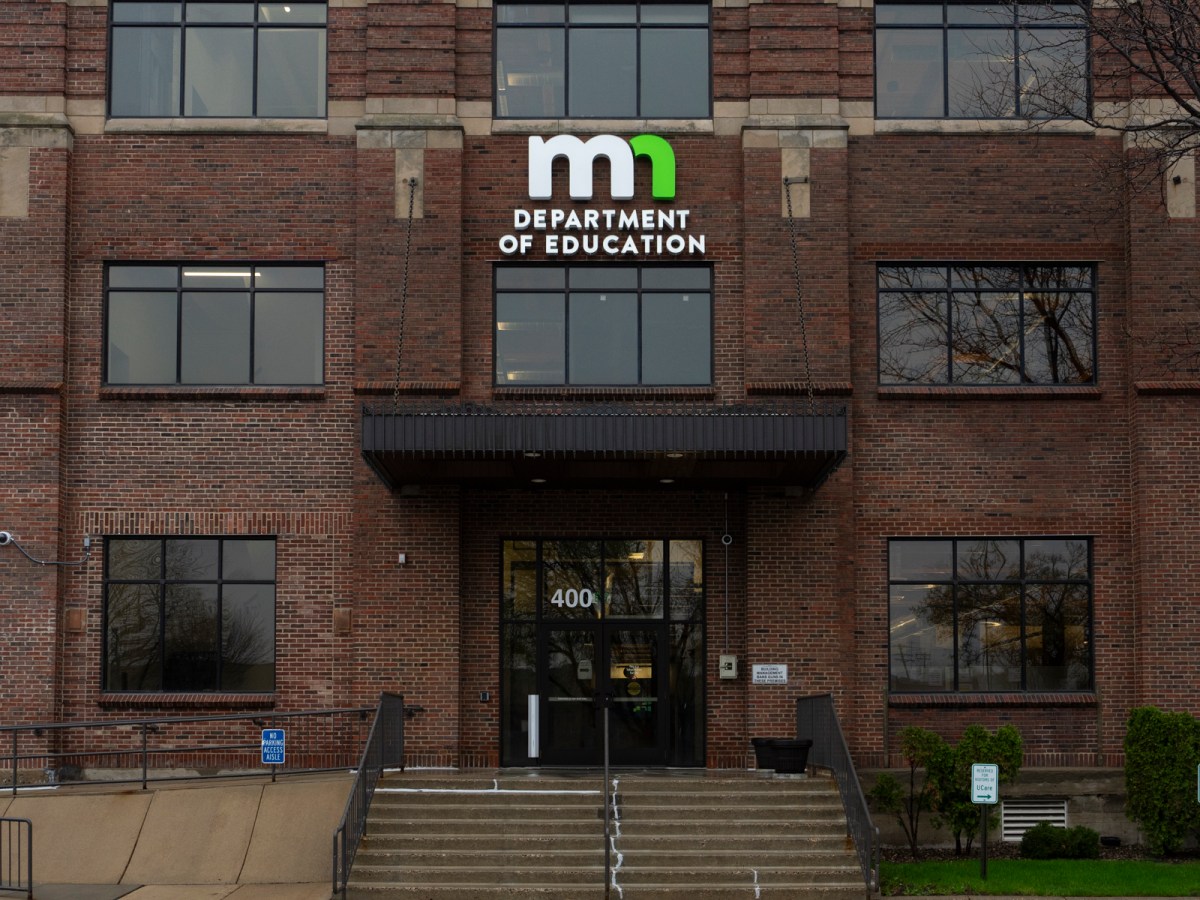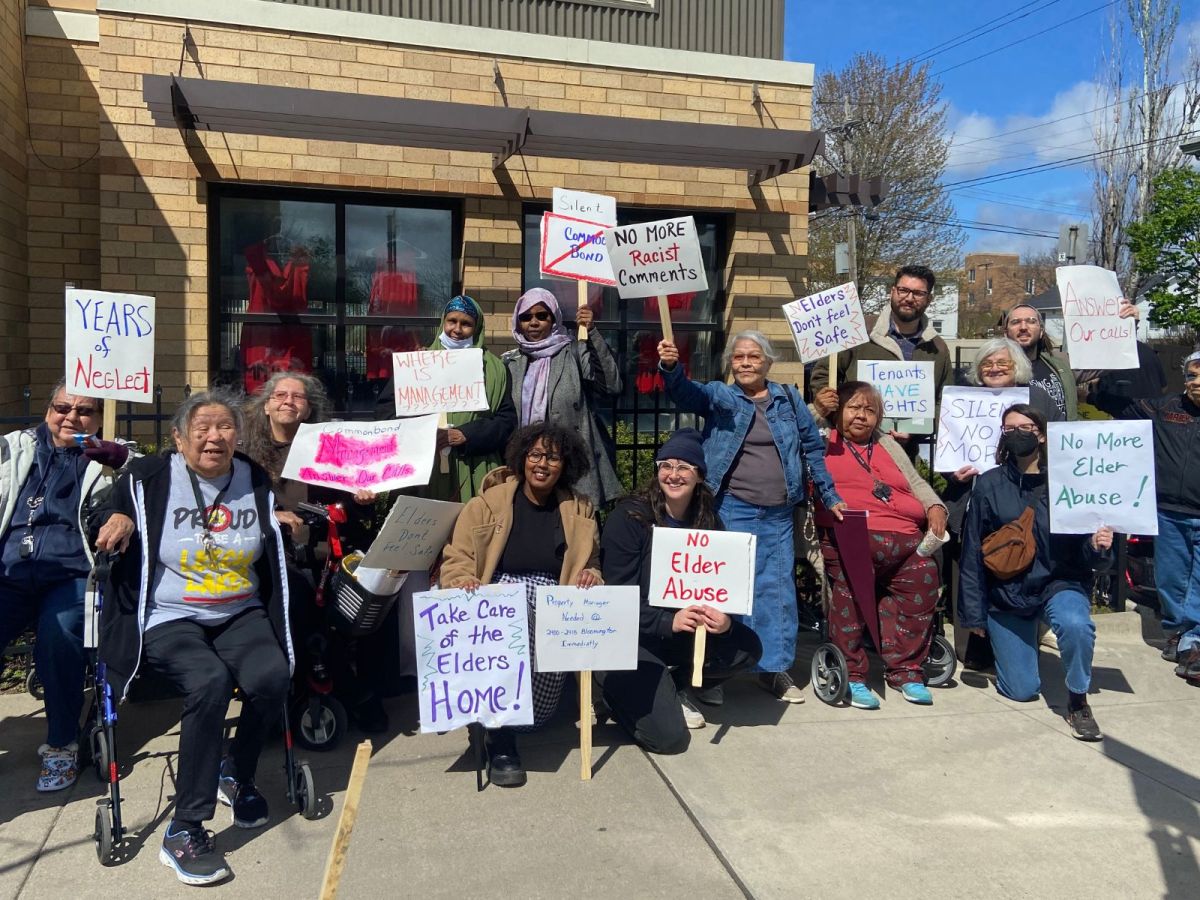Right now, Congress is working to pass a new farm bill, important legislation that includes nutrition assistance, programs to support farming, conservation and forestry, and rural development. The farm bill touches the lives of every American and is vital to national, state, and Tribal economies – but it hasn’t always been equitable or fair. I’m working to ensure the next one works for all Americans.
With this farm bill, we have an opportunity to correct historical injustices and uplift Black, Indigenous, Somali, Hmong, Latino, and other farmers of color who have long been marginalized and underserved. We start by acknowledging the systemic challenges that farmers of color confront daily. Food and agriculture today are dominated by large, corporate operations, which makes it difficult for small and mid-sized farmers––including most Black, Indigenous, and other people of color (BIPOC) farmers––to compete and thrive.
In 1910, approximately 14 percent of American farmers were Black, collectively owning over 16 million acres of land. Now only one in 100 farmers are Black, and their land ownership is fewer than 5 million acres. Today, 98 percent of all farmlands in the United States are owned by white farmers and in Minnesota, the disparity is even wider with 99 percent of farmers in the state being white. Additionally, a study conducted last year revealed that Black farmers have lost over $325 billion in land value over the last century.
The systemic barriers BIPOC farmers experience are the result of decades of state and federal policies that systematically held farmers of color back. For years, the U.S. Department of Agriculture (USDA) failed to serve farmers of color. I heard about this earlier this year when I held a roundtable discussion with BIPOC farmers and leaders from the Hmong American Farming Association, Latino Economic Development Center, Big River Farms, and the Midwest Farmers of Color Collective.

Community members discussed the challenges they face, especially getting access to capital and land. We also discussed the opportunities before us if we reimagine and transform farming, remove barriers for people of color, act on climate justice, and make our food systems more equitable.
The good news is that the USDA under the Biden administration is focused on these issues and is making progress. I’m also focused on passing new laws to make our farm and food system work better for Native and BIPOC farmers.
Here’s what I’m working on. My bill, Ensuring Accountability for Equity at USDA Act, would help all farmers have fair access to USDA programs and resources, and hold the USDA accountable through better data and transparency for how it serves socially disadvantaged farmers.
I’ve teamed up with Senators Cory Booker (D-NJ) and Raphael Warnock (D-GA) to reintroduce the Justice for Black Farmers Act. This bill would address the historic discrimination within federal farm assistance and USDA lending. Our bill would help socially disadvantaged farmers access much needed credit for operations, and money for historically Black colleges and universities to support farmer training and agriculture research and education. The bill also extends assistance to all socially disadvantaged farmers, recognizing that discrimination has impacted many communities.
Native American and Tribal communities also face persistent inequities in the agriculture sector. As a member of both the Senate Indian Affairs and Agriculture committees, I am leading the work to include Native voices and priorities in the next farm bill. This legislation includes expanding powers for Tribal Nations to govern how they implement federal nutrition programs, supporting Native farmers and entrepreneurs that are opening new meat processing facilities, and reforming USDA programs so they work better with Tribal governments.
I’ve seen great examples in Minnesota of Native leaders bringing innovative and successful models forward. In August, I visited David and Petra Wise, who own Native Wise LLC, a 380-acre farm in Sawyer, Minnesota. David is a descendant of the Fond du Lac Band farming land owned by his family for several generations.
The Wise family produces wild rice, hemp, maple syrup, raw honey, as well as fruits and vegetables. They recently reintroduced bison to their lands and are part of an effort to save Ojibwe Spirit Horses, known as Lac La Croix Ponies, which have nearly been hunted to extinction. Another great example is Dream of Wild Health, a 30-acre farm in Hugo, Minnesota that I visited to celebrate their 25th anniversary. Through their farming and youth education programs, Dream of Wild Health is reconnecting Native people to their food and culture, a program that has been recognized nationwide.
Native and Tribal leaders know best how to meet the needs of their communities. Congress should respect their sovereignty and give them the agency to make decisions in the best interests of their people, so Native communities can build food systems that address food insecurity, increase access to Indigenous foods, and use Indigenous knowledge to improve forest management and conservation, and support strong Tribal economies.
President Biden recently signed a one-year extension for the current farm bill to provide certainty for farmers while we continue to work toward a bipartisan, multi-year bill. We have a lot of work to do, but I am optimistic that the next farm bill offers a path to start correcting historical injustices and address long-standing disparities faced by farmers of color. We have the responsibility to make lasting change, right historical wrongs, and build a system where BIPOC farmers can fully participate in American agriculture. We move forward, advocating for a fair and inclusive agricultural system will be a top priority as we look toward the new year.






